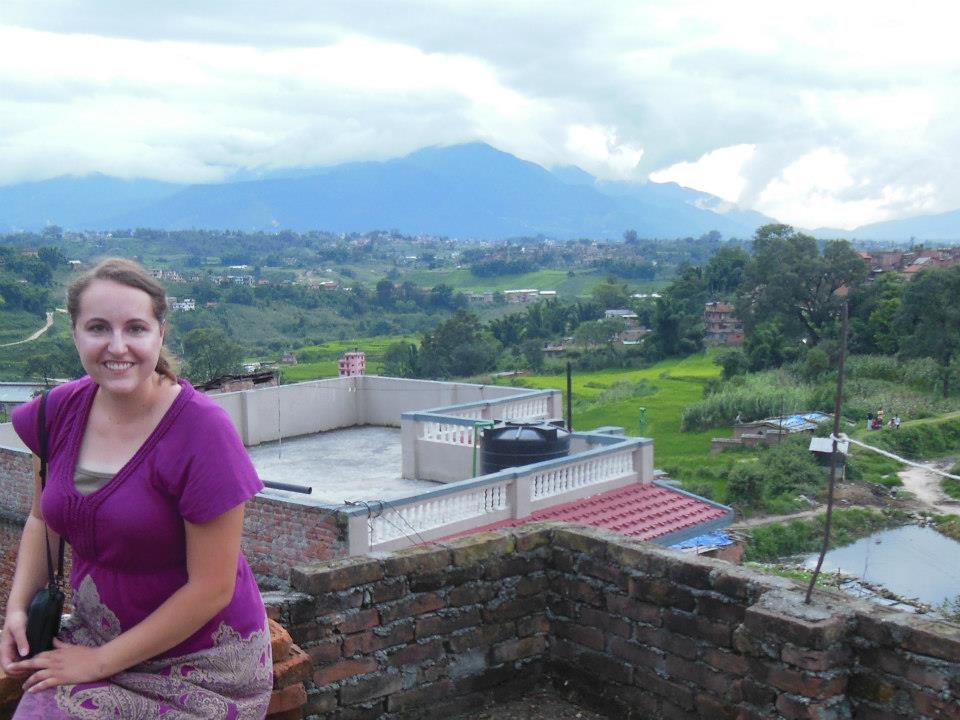-
Staying Hopeful When the World Feels Like a Dumpster Fire: Tips I’ve Learned From the “Pros”
September first was my one-year anniversary working with TMS Global. My job is to interview cross-cultural witnesses (CCWs, or missionaries) and write their stories. You’d think this job has the potential to be depressing. After all, the world kind of feels like a dumpster fire so much of the time. But I’ve found that the opposite has happened. These people I talk with who live and work in very hard places are often filled with optimism and hope, rather than the despair I expect. Here are a few things I’ve learned about how to stay hopeful when the world feels like a dumpster fire. 1. Recognize that the world is…
-
Normalizing Imperfect Stories
What I love about cheesy Hallmark movies is that they are completely predictable. The pattern of each story is pretty much the same. In my own life, things seldom seem to go as planned. So it can feel good to spend a couple of hours in a world with no surprises, and a guaranteed happy ending. We love happy endings in stories told by nonprofit organizations or ministries, too. It feels great to read a story like, “This person was hungry, and you gave money to feed him, and now he is not hungry anymore,” or “This person was struggling, and you prayed for her, and she’s found freedom.” But…
-
Questions to Ask Before Posting/ Sharing a Missions Story
Looking to share a story from your short-term mission trip, or long-term mission work? Here are a few questions you might want to ask yourself before posting or speaking. Whom do I help by telling this story? (Is the purpose of this story or photo to make me look good, or does it benefit others?) Whose perspective is highlighted? (Am I the center of the story, or is someone else’s perspective highlighted?) Am I correcting stereotypes and myths or contributing to them? Should I be telling this story or should someone else? (Can the person featured in the story tell their own story?) Am I reducing people to their problems,…
-
Sharing Words and Pictures as Though Humans are Made in the Image of God
I think a lot about words, and how to use them well. This can be challenging, and I’m still learning a lot. But I think my starting point is this: I must remember that all humans are made in the image of God. Genesis 1: 26-27 tells us: 26 Then God said, “Let us make mankind in our image, in our likeness, so that they may rule over the fish in the sea and the birds in the sky, over the livestock and all the wild animals, and over all the creatures that move along the ground.” 27 So God created mankind in his own image, in the image of God he created them; male and female he created them. Before anything else,…
-
Challenging Perceptions
Today I want to share some humorous videos that have helped me think more deeply about cross-cultural communication. These videos are part of a campaign called “Radi-Aid,” created by the Norwegian Students’ and Academics’ Assistance fund (SAIH). The goal “is to challenge the perceptions around issues of poverty and development, to change the way fundraising campaigns communicate, and to break down dominating stereotypical representations.” The Radi-Aid website has lots of great resources and tips for how we can do a better job communicating in a more ethical way. This first video turns the “celebrity charity single” on its head. This time, instead of Europe (or America) asking for money to…
-
Digging Deeper: Narrative Identity Theory
In my previous post I shared a little about how stories can have impact in the real world. Today I want to go a little deeper into that idea. While working on a paper for one of my seminary classes, I was introduced to something called narrative identity theory. This theory says that stories are “among the most important means by which people articulate and clarify their sense of [the world].”i We connect events together to form stories to help our lives make sense, stringing memories together in the way that a novelist arranges chapters.ii On the individual level, narrative identity theory is the identity we construct through the stories…
-
Do the Stories we Tell Actually Matter?
Last week I talked about a few of the differences between ethical and unethical storytelling. But does how we tell stories, and the kinds of stories we tell actually matter? Can the images and words we use actually cause harm or cultivate good? Yes, they can! The stories we tell have real impact in the real world. Maybe you’ve encountered the impact of stories, perhaps without even realizing it. For example, have you ever heard stories about someone before you met them? Maybe someone new is moving into your neighborhood, or joining your class at school, or starting at your workplace. Perhaps you’ve only heard negative things about this person:…
-
What is Ethical Storytelling?
I believe my calling, or a big part of it anyway, is to tell ethical missions stories, or ethical stories about cross-cultural work. But what does that mean? The truth is I’m still learning. But here’s what I know right now. Ethical stories preserve the dignity of their subjects. These stories aim to help readers and viewers better understand complex issues, rather than oversimplifying problems. Ethical stories help people see the humanity in others. They allow subjects to speak for themselves. They don’t further stereotypes, but dismantle them instead. They are diverse. Ethical stories don’t show people as utterly helpless, needing rescue from those in a “wealthy” country. Rather, they…
-
How I Became a Cross-Cultural Storyteller
Hi, I’m Jenifer, and I’m really passionate about telling good missions stories. That is, I feel called to tell the stories of the work that God is doing in the world, through cross-cultural workers and their friends. And I feel called to tell these stories in an engaging and ethical way. I want to share with you how I realized this calling. I’ve been a storyteller for nearly my whole life. I have stacks of notebooks and journals to prove it. For much of my life, I’ve also been interested in global missions. As a kid, I loved when missionaries visited my church. I would hang on to every word…
-
A Poem for Those Who Mourn
I wonder if when Jesus died the disciples wanted to be shut up in the tomb, too. “Block out the light! Tell the oxygen to leave! Roll the stone in place, and keep it there! For hope is dead and so are we!” Gathered together behind a locked door, I wonder if they said, “This wood is not strong enough, this room is not dark enough, to match our pain.” They did not know or understand that the tomb would not stay closed or dark forever. That as dawn illuminated the sky on the third day, so did His glory illuminate the space where the stone had once been. Death,…








